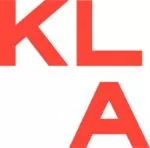- within Transport, Insolvency/Bankruptcy/Re-Structuring and Antitrust/Competition Law topic(s)
September was marked with important decisions on tax issues by the Superior Courts, with binding effects on all judges and courts, as well as important events in the field.
In this Tax Law newsletter, you will find the following news:
- STJ accepts the use of rescissory action to align rulings with effect modulation established in the Theme 69
- STJ rules that ISS is included in the calculation base for IRPJ and CSLL in the presumed profit regime
- STF begins judgment to determine whether the 150% tax penalty imposed by the Federal Revenue Service in cases of tax evasion constitutes a confiscatory measure
- STJ dismisses the taxpayer's motion for clarification in the matter of the contribution to third parties
- PGFN opens consultation on new rules to standardize the use of surety bonds
- STJ to analyze Perse rules through repetitive appeals
STJ accepts the use of rescissory action to align rulings with effect modulation established in the Theme 69
The First Section of the Superior Court of Justice (STJ) decided on September 11, by a majority vote, that the Federal Tax Authority has the right to file rescissory action to overturn judicial decisions that disregarded the modulation of effects established by the Supreme Federal Court (STF) in the judgment of Topic 69, which pertains to the exclusion of ICMS (State VAT) from the calculation base of PIS and COFINS (social contributions).
According to the Federal Tax Authority, the decisions that became final between March 2017 (the start of the effect modulation) and April 2021 (when the modulation was finalized) and granted taxpayers rights that were inconsistent with the STF's ruling.
The Court issued the following ruling: "It is admissible to file a rescissory action to adjust rulings issued prior to May 13, 2021, to the modulation of Topic 69 of the STF".
STJ rules that ISS is included in the calculation base for IRPJ and CSLL in the presumed profit regime
On September 11, the First Section of the Superior Court of Justice ruled on Topic 1240, which addresses the inclusion of ISS (Municipal Service Tax) in the calculation base of IRPJ (Corporate Income Tax) and CSLL (Social Contribution on Net Profit) when these taxes are assessed under the Presumed Profit system.
Justice Gurgel de Faria, the reporting judge for the case, was brief in his vote, recalling that the court had already dealt with a similar issue involving ICMS.
The justice's opinion was unanimously followed, consolidating the understanding that ISS must be included in the calculation base for IRPJ and CSLL under the Presumed Profit system.
STF begins judgment to determine whether the 150% tax penalty imposed by the Federal Revenue Service in cases of tax evasion constitutes a confiscatory measure
On September 5, the Supreme Federal Court began a judgment on the limits of the tax penalty in cases of tax evasion, fraud, or collusion, considering the constitutional prohibition against confiscatory penalties.
So far, the reporting Justice Dias Toffoli, has presented his vote, proposing the following thesis: "Until a federal complementary law is enacted on the matter, the enhanced tax penalty for tax evasion, fraud, or collusion is limited to 100% of the tax debt, with the possibility of reaching 150% in cases of recidivism, as provided in Article 44, § 1-A of Law Nº. 9,430/96, as amended by Law Nº. 14,689/23."
After the oral arguments from the involved parties, the judgment was suspended and is expected to resume in a future session for the other justices to present their votes and reach a final decision on the matter.
STJ dismisses the taxpayer's motion for clarification in the matter of the contribution to third parties
Following the decision by the Superior Court of Justice that there is no cap of 20 minimum wages for companies calculating contributions to third parties (to the "S System"), Justice Regina Helena dismissed nine motions for clarification related to the modulation of effects.
In a brief and concise manner, without delving into the merits, the STJ rejected the motions for clarification, emphasizing that the judgment was sufficiently clear regarding the criteria adopted for the modulation of effects.
The modulation of effects in question was established in the judgment of March 13, 2024, to provide that only taxpayers who had favorable judicial or administrative decisions prior to the commencement of the trial on October 25, 2023, could benefit from the 20 minimum wage limit until the date of the publication of the decision, namely, May 2, 2024.
PGFN opens consultation on new rules to standardize the use of surety bonds
The Office of the Attorney General of the National Treasury (PGFN) has opened a public consultation to gather suggestions from lawyers, insurance companies, and taxpayers on the draft of a new regulation governing the use of surety bonds for tax debts. Contributions may be submitted until September 30 through an online form.
According to the PGFN, the purpose of the new regulation is to replace PGFN Ordinance No. 164, dated February 27, 2014, with the aim of "making the rules more aligned with the needs arising from regulatory innovations in recent years."
The key changes proposed include: (i) eliminating the requirement to submit the surety bond 30 days prior to the expiration of the previous policy, allowing renewal up until the actual expiration date; (ii) aligning with the prohibition of enforcing the surety bond before a final and unappealable decision; (iii) creating a standard policy to facilitate acceptance by the National Treasury; and (iv) waiving the need for a preliminary guarantee action to offer the bond before the debt is registered in active debt.
STJ to analyze Perse rules through repetitive appeals
The 1st Section of the Superior Court of Justice (STJ) will adjudicate, under the repetitive appeals system, six cases concerning two central issues related to Perse, the federal government program designed to promote the recovery of businesses in the events and tourism sectors affected by the pandemic.
The two issues to be addressed by the court in these repetitive appeals include: (i) whether taxpayers are required to register in the Ministry of Tourism's Register of Tourism Service Providers (Cadastur) to access the program's benefits, and (ii) whether businesses under the Simples Nacional regime are also entitled to the zero tax rates for Income Tax (IRPJ), Social Contribution on Net Profit (CSLL), PIS, and Cofins.
The STJ's ruling may affect the settlement program launched by the Federal Revenue Service, through the Normative Instruction No. 2.210/2024. It is important to note that the deadline for joining the program is November 18. Tax debts related to IRPJ, CSLL, PIS, and Cofins accrued between March 2022 and May 2024 are eligible. To participate, taxpayers must pay 50% of the total tax debt upfront, with the remaining balance payable in up to 48 installments.
The content of this article is intended to provide a general guide to the subject matter. Specialist advice should be sought about your specific circumstances.




